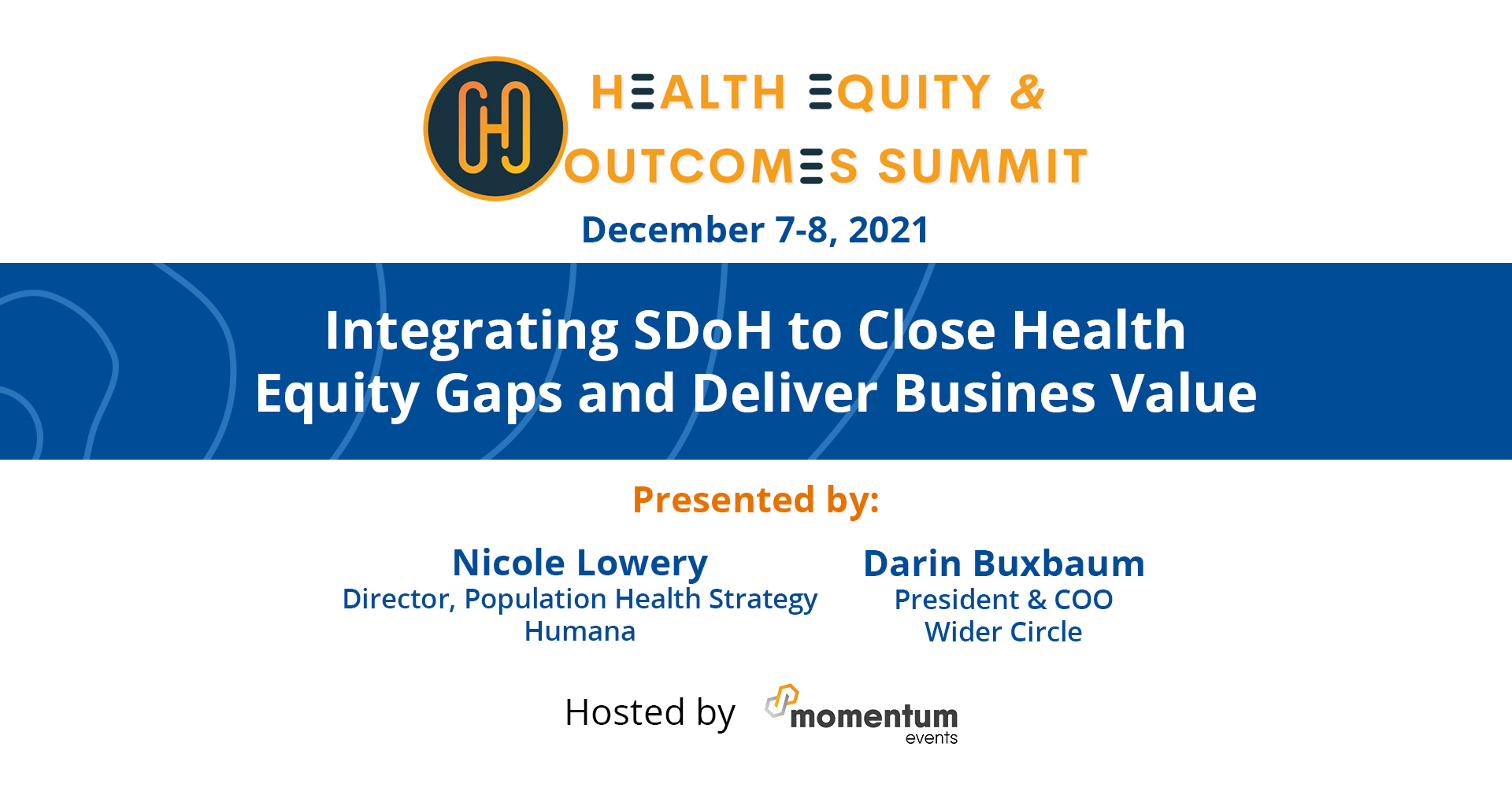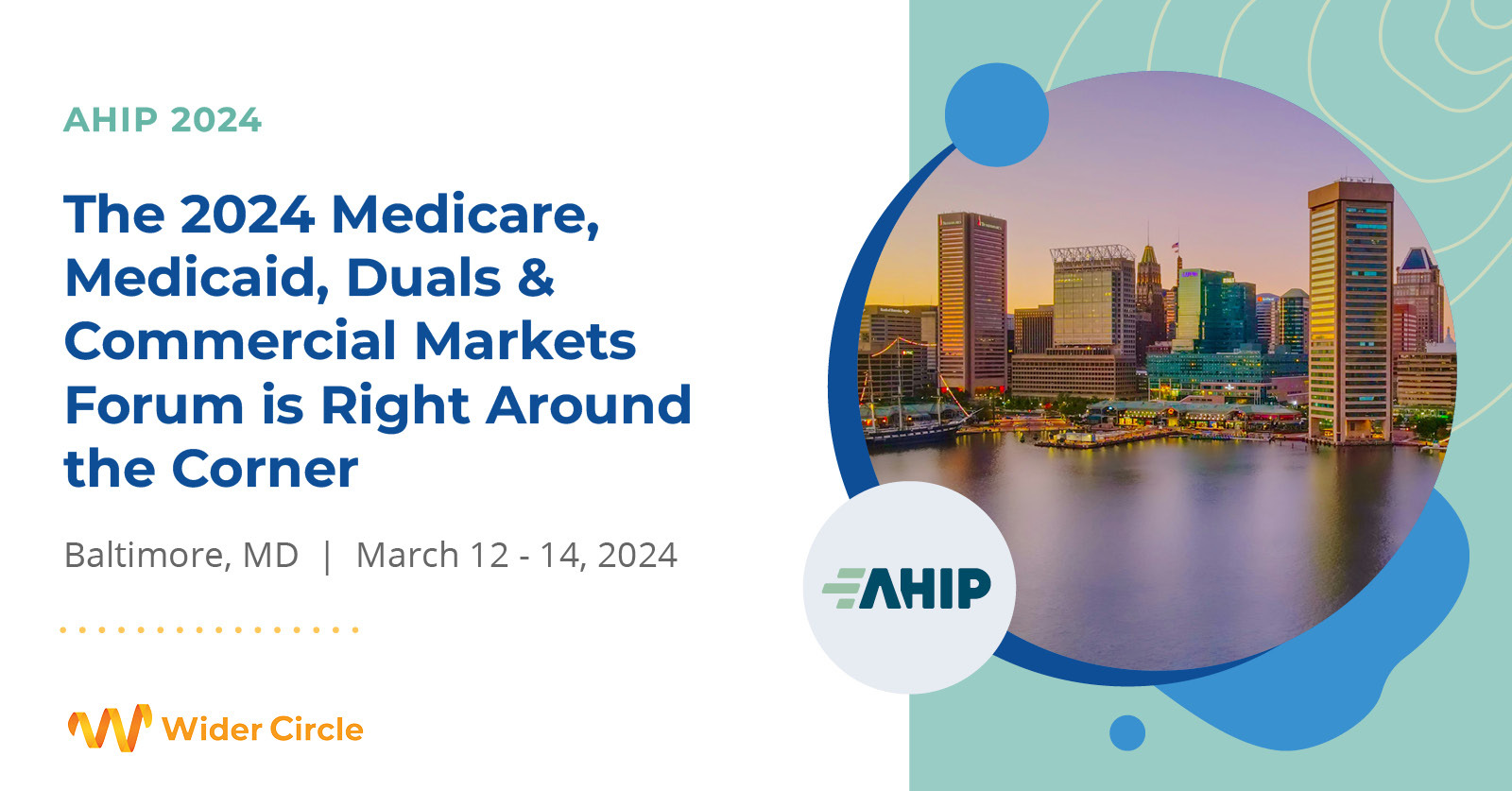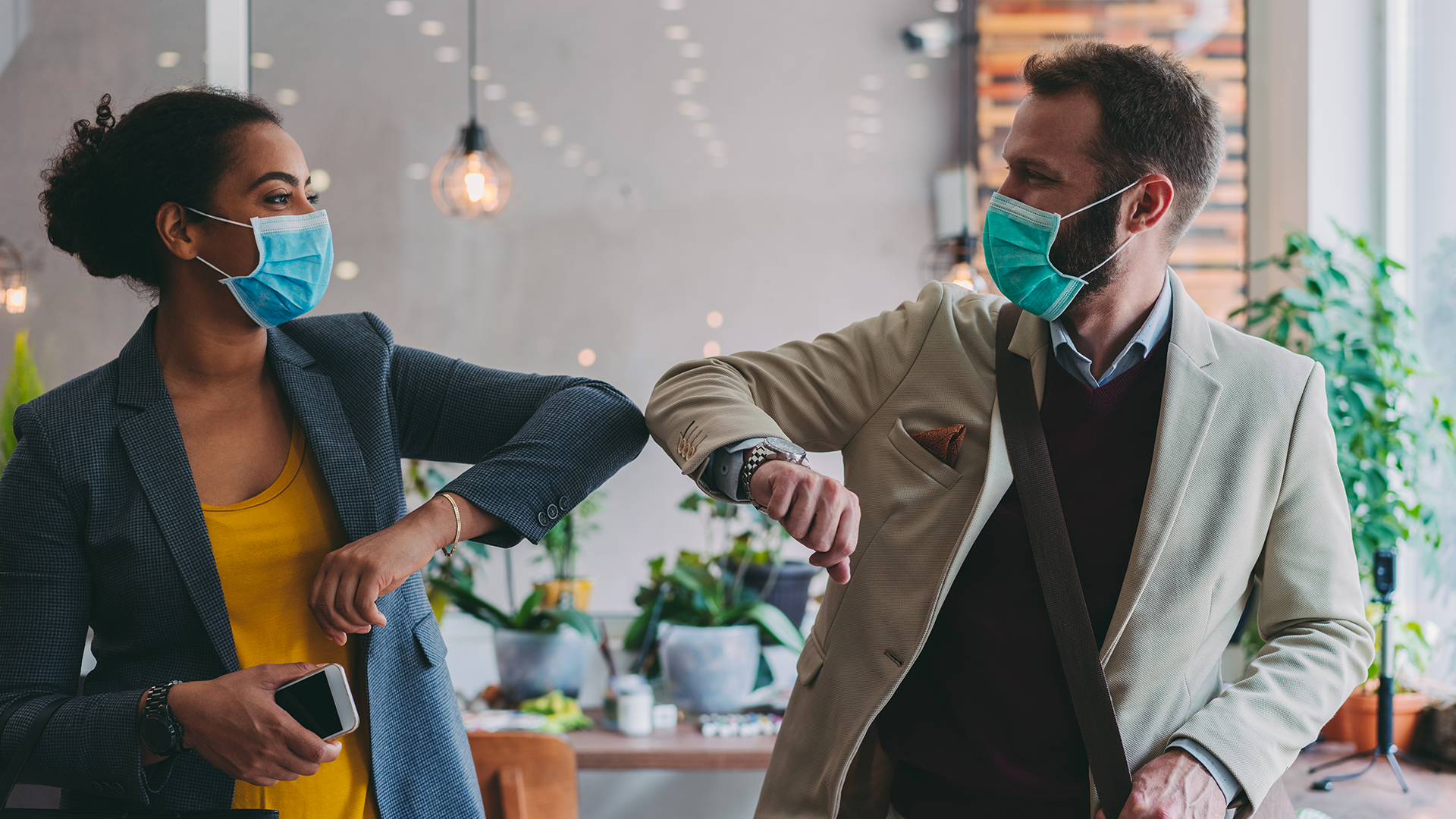
On Tuesday, December 7, Nicole Lowery, Director of Population Health Strategy Office of Health Affairs and Advocacy, Humana, and Darin Buxbaum, President and COO, Wider Circle were among a list of diverse life sciences, payer and health system professionals coming together to discuss diversity, inclusion and better access to care at the Momentum Health Equity and Outcomes Summit. With health equity a critical component of ensuring success for all individuals to access essential care, Mr. Buxbaum and Ms. Lowery shared recommended approaches to integrating Social Determinants of Health (SDOH) to close health gaps among disadvantaged populations and deliver business value. Check out these three key takeaways from their talk:
- In order to address gaps in care, invest in the whole person. Ms. Lowery pointed out that 80% of what impacts someone’s health occurs outside the doctor’s office. “We often say the five most important numbers in a person’s life is their zip code.” It’s critical to look outside the healthcare setting to address whole person health, which is why Humana set a Bold Goal in 2015 to improve the health of people and communities they serve. To make it easier for everyone to achieve their best health, Humana has developed initiatives like healthy food cards, meal delivery during COVID, 13 million+ SDOH screenings to date, and strategic partnership with community organizations.
- Allocate the proper time and resources to thoroughly review and vet community partners that align with your SDOH goals. The presenters stressed the importance of aligning SDOH with your broader company strategy, and then applying a thorough vetting process with SDOH vendor options in your service areas. What to look for: Is the vendor data-focused? How do they support targeted member outreach? Can they provide research and insights that help identify critical interventions based on social needs? Can they provide data-driven results that tie back to quality metrics for improved health outcomes and business growth? Have they demonstrated scalability with similar partnerships?
- There is no one-size-fits-all approach to addressing health equity; be patient and open to experimentation. Humana chose Wider Circle’s hyper-local, peer-to-peer community care solution to address a key area of SDOH that has a profound impact on overall health: loneliness and social isolation. Currently, they are rolling out a pilot program with 1000+ high-risk Medicare members in Atlanta, with the goal of reducing loneliness to improve quality of life, engagement in health and overall utilization. Mr. Buxbaum shared how Wider Circle’s flagship program, Connect for Life®, leverages the power of trusted peer networks to foster meaningful social connections that in turn positively impact health outcomes like improved mental health, reduced hospitalizations and increased wellness visits. However, moving the needle in hard-to-reach communities doesn’t happen overnight. Ms. Lowery noted that while Humana is starting to see incredible results from Connect for Life, it took longer than anticipated to officially roll out the program. The pandemic presented clear barriers to getting member groups together, and building trust among vulnerable populations requires meaningful connections with people of similar backgrounds. Wider Circle quickly identified and deployed “super members” called Volunteer Ambassadors to help motivate other members to get the care they need, whether that’s training members to use Humana’s patient portal or teaching them the Samba at a group fitness event.
Based on learnings from this community pilot, Humana hopes to roll out similar programs for addressing other SDOH needs for its members. Learn more about Humana’s Bold Goal at populationhealth.humana.com.
View the full presentation here.


